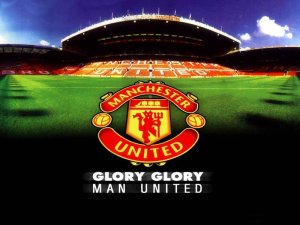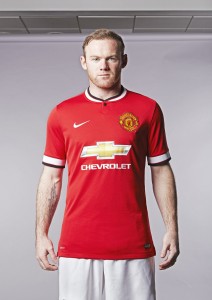 Sir Matt Busby has said at Manchester United, they strive for perfection – and if they fail to attain that, they “might just have to settle for excellence.”
Sir Matt Busby has said at Manchester United, they strive for perfection – and if they fail to attain that, they “might just have to settle for excellence.”
Manchester United and Their Business Model
Manchester United manage and operate their business as one single reporting segment, which is to say they view themselves as operating a professional sports team. Their revenue, on the other hand, is broken down into three reporting segments: matchday revenue, commercial revenue and broadcasting revenue.
Matchday Revenue
Manchester United consider themselves to have one of the most iconic venues in the world in Old Trafford. With a seating capacity of 75,365, it’s the UK’s largest sporting club stadium, and they’ve averaged some 99% of attendance capacity in their Premier League matches for each of their last 17 years.
Matchday revenue therefore includes ticket sales and concessions (fans can get Man U tickets here) as well as other similar sources. For the season ending on June 30th of 2014, their matchday revenue totaled £108.1 million (over $168 million).
Commercial Revenue

Inside the Commercial revenue sector of the United business, they divide revenue into three different streams which help them monetize their global brand: sponsorship revenue; revenue from merchandising (retail, product, & apparel licensing) and mobile & new media revenue. According to United, they feel the commercial sector will be their fastest growing sector overall in the next few years.
Sponsorship Revenue: Manchester United’s sponsorship and marketing partners are both regional and international. They’re attracted to the worldwide community of United fans and followers as well as the worldwide United brand.
To leverage their brand’s strength, they’ve been able to develop a sponsorship strategy that segments into global, regional, and product sponsorship. Their global sponsors include major brands like Chevrolet, Aeroflot, Bwin, Bulova, DHL, Campari, Spson, Singha, Nissin, Yanmar and Toshiba. For the last year, their sponsorship revenue totaled £135.8 million (almost $200 million).
Merchandising, Retail, Product & Apparel Licensing Revenue: Manchester United sells and markets clothing with the Manchester United brand globally, including sports apparel, leisure and training wear and other clothing. They also sell a variety of other licensed products with the United trademarks and brand, ranging from bed spreads to coffee mugs.
They distribute these products through United-branded retailers, ecommerce stores, and via wholesale distribution channels owned by their partners. Their apparel, merchandising and product licensing revenue totaled £37.5 million ($57 million) last year.
Mobile & Content Revenue: Thanks to the power of the United brand and the quality of the content they provide, they’ve been able to form partnerships with mobile telecom companies in many different countries. They also market content to their followers directly through the Manchester United website and its associated mobile properties.
Their content and mobile revenue was some £16 million ($25 million) in the past year.
Broadcasting Revenue
The team benefits both directly and indirectly from broadcasting and distribution of live football content. They benefit directly through the revenue they’re paid, and indirectly in the way it brings greater global exposure to their commercial partners.
United’s broadcasting revenue come from global television rights for Champions League, Premier League and similar competitions. They also benefit from their wholly-owned branded global television channel, MUTV, which delivers United programming to more than 85 territories and countries worldwide.
Broadcasting revenue for Manchester United totaled £135.8 million (another $200 million) through June 2014.
Manchester United – One of The Big Boys
As you can see, there is very little doubt soccer belongs with the big boys when talking sports business. The opportunity for ticket sales, branding, merchandizing and mobile revenue is ever-present; especially with the big clubs like Manchester United.


Dear Michael,
It was great how you covered the three kinds of revenue and how Manchester United benefits/profits from them as a professional soccer team – VERY streamlined business!
Manchester United’s robust business model showcases their ability to leverage global branding through diverse revenue streams, making them a powerhouse in sports. slope ball